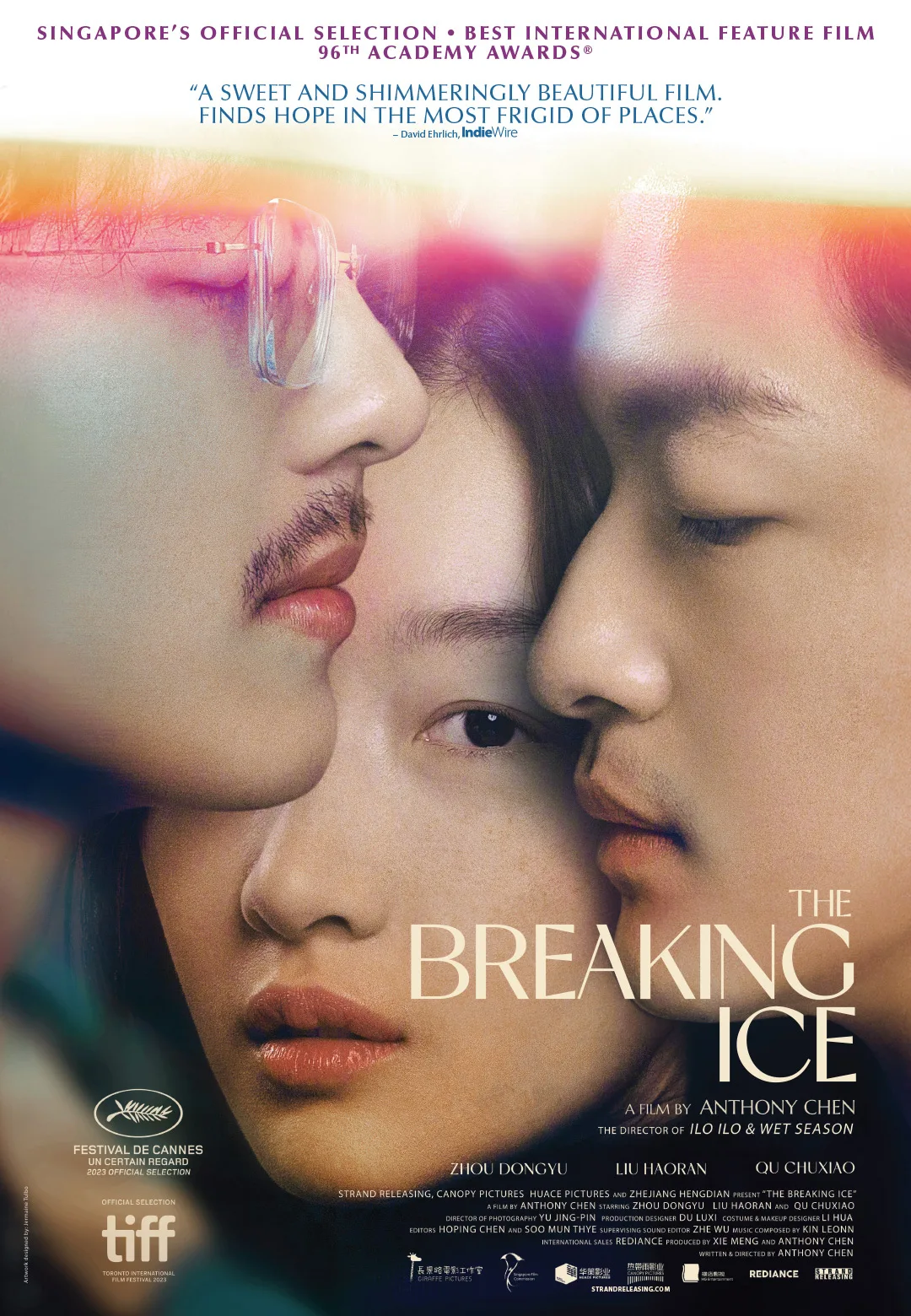“The Breaking Ice,” from writer/director Anthony Chen, is about three lost souls facing the frozen world outside and in. It takes place in the midst of winter, near the border of China and North Korea. The scenes of ice and snow are exquisitely composed and lit, with a score that often includes soft, shimmery chords that evoke the feeling of breathing frigid air. They also evoke the film’s tone, more a mood piece than a plot-driven, structured narrative.
The title is taken literally from the first scene, where we see people making bricks out of ice, and shortly after, when we meet Li Haofeng (Haoran Liu), who crunches the ice from his drink as he attends a reception following the wedding of a Korean colleague. He barely interacts with the other guests. Instead, he wanders off to the roof, gazing down at the wintery landscape, clearly thinking about jumping. But a tour bus pulls up, with Nana (Dongyu Zhou) leading Chinese visitors through the expat Korean community near the Changbai Mountains. The next day, Haofeng joins the tour, though he remains disconnected and remote.
Nana takes the group to see Korean dancing and eat Korean food at a restaurant where Han Xiao (Chuxiao Qu) works. The tourists can even rent Korean dresses to take selfies in before they go home. Haofeng loses his cell phone, which is also his digital wallet. Nana has never accepted any of Han’s invitations to go out, but she feels sorry for Haofeng and agrees to meet Han, bringing Haofeng along. After a drunken night together, with Nana on a break from her job, Haofeng misses his plane home and the three of them begin to form a tentative, if temporary, found family, going dancing, daring each other, peering across the border, climbing a steep, remote, snowy trail to see Heaven Lake.
Like his characters, Singaporean Chen places himself in an unfamiliar country. Haofeng, Nana, and Han all left their homes to try to escape expectations and memories, and all found instead a sense of dislocation. Nana says, “I’ve been away for so long I am not even sure where home is.” Haofeng says, “I went away only to learn nothing is different, just working harder.”
Even when Nana has sex with one of the men, it is more about obliterating her feelings than any kind of connection or intimacy, just like when she gets falling-down drunk. We begin to see that it is not because she does not like Han that she keeps rejecting him, sometimes rudely. It is because she does like him and she does not like herself.
Chen is influenced by the French New Wave, and there are echoes of “Bande à part” and “Jules and Jim.” But do not let the meandering series of scenes, underscoring the characters’ aimlessness, allow you to overlook Chen’s precision in even the smallest detail. One scene shows Nana, Han, and Haofeg at a distance, in an outdoor setting laid out to suggest a clock, as the score chimes to let us know that while they may feel stuck in time, it nevertheless continues. Han’s interactions with his young nephew, who says he wants to follow Han’s example, Haofeng’s refusal to respond to calls about missing his therapy appointments, and Nana’s painfully awkward meeting with a former colleague show us that they are not as removed from their pasts as they hoped. Ultimately, those ice cubes Haofeng used to crunch turn into one gently passed back and forth between the trio, and then, one held aloft, the drop of icy water on his cheek blending with the tears he has held back for too long.
Some of the details get heavy-handed. The group visits the zoo, gazing at the caged animals. Haofeng’s watch, commented on twice as being very expensive, stops working. But the visual poetry of the images keeps the tone lyrical, and by the time the tour guide herself becomes a tourist, even being prevented from seeing Heaven Lake by the weather, we share the characters’ renewed belief in possibility.




















